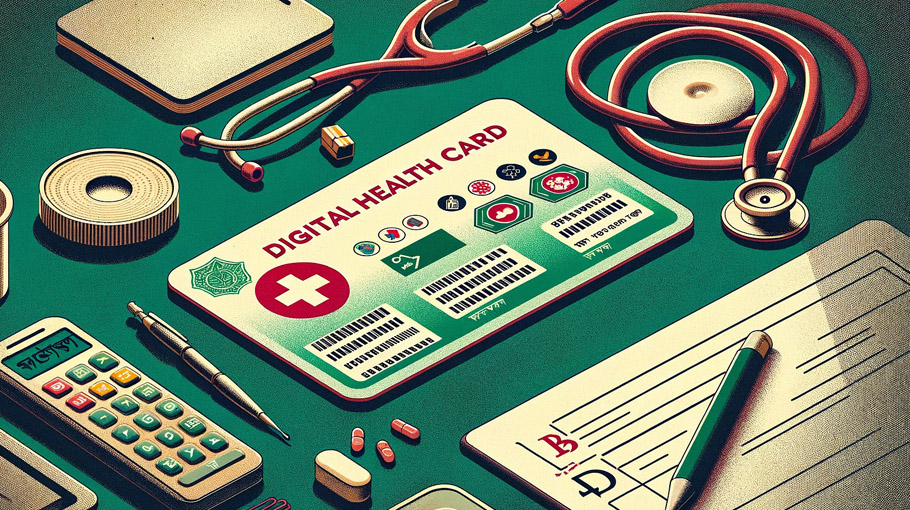Smart health ID cards to be introduced soon

Like in developed countries, the government has taken an initiative to introduce Smart Health Identity cards to all patients of different hospitals across the country reducing suffering to people.
Director General of the Department of Health Professor Dr. Abul Basar Mohammad Khurshid Alam said that the government has taken initiatives to make healthcare more patient-friendly besides making it digital.
The Director General also said that preparations have been made to start this program in 10 hospitals at the initial stage. This will be linked to an operational plan in the next financial year and implemented across the country.
These include the National Institute of Traumatology & Orthopaedic Rehabilitation (NITOR), the National Institute of Neuroscience and Hospital, and the Keraniganj Upazila Health Complex. All government hospitals across the country will be brought under its purview gradually.
A card will store the detail information of the patient. All information about doctor’s appointments, diseases and tests will be stored there.
Besides, as all the information is online, the required health care and test report will be sent to the e-mail
address of the patient by mentioning the health card number.
Through this, patients can make hospital appointments sitting at home. So the patient does not have to carry any additional documents to the hospital. Just carry the card.
It is to be noted that the piloting of the Health ID issue program for patients in Manikganj and Gopalganj of Dhaka Division along with the NITOR of Dhaka has already started.
From now citizens can register for smart health IDs online through mobile phones or computers at home. After completing the registration an applicant can download the health card.
According to the Health Directorate, there will be a separate website for the health card.
Health cards can be obtained by registering online on that website. However, those who cannot register online can register from the authorized government and private hospitals.
For registration, those under 18 must visit the hospital with a copy of the national identity card or birth registration. This card can be done free of cost from the designated counter in the hospital.
After that, they can take e-appointments in hospitals covered by this system. The ticket fee can be paid through mobile banking or online banking also, said the health directorate.
The officials concerned also said that as a result the patient does not have to go to the hospital in the morning for the ticket and stand in line to see the doctor again. Patients can book e-appointments online from their homes.
Each citizen will have a unique Health ID number. All the health care information of a patient covered by the health card will be stored in the digital database from birth to death.
Automation work has already started in government hospitals for this purpose.
The director general of the health department said that if this situation starts across the country, the patients will not have to stand in line and buy tickets.
Patients will come to the hospital at their scheduled time, saving time and also reducing the pressure on the hospital.
At the beginning of 2023, health minister Zahid Malek had said that health cards would be issued to everyone in the country. Earlier in March 2016, the government started the distribution of health cards under the pilot program titled Health Protection Program (SSK).
Through this card, there was an opportunity to get medical services worth Tk 50 50,000 from the district-level government hospital. But one person per family is given this card.
As a pilot project in Ghatail, Madhupur and Kalihati of Tangail, this opportunity is available through upazila and union-level committees for the people below the poverty line. In response to a question in Parliament on November 7, 2023, then Health Minister Zahid Malek said that 1 lakh 51 thousand 427 families have been given health cards.




